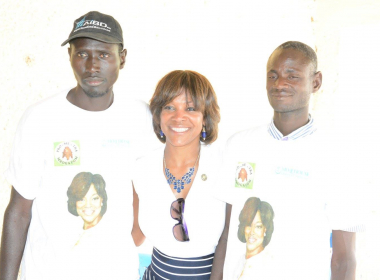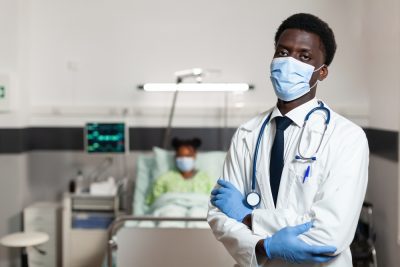
“When we got the results from Conakry confirming that Ebola had reached our place, we were scared,” shares Dr. Maurice Ony Beuvogui, the director of the district hospital in Télimélé, a Guinean town located 168 miles north of the capital Conakry. “But we knew that we, health workers, have the responsibility to fight it.”
Having a population of 300,000, Télimélé officials knew they had to act, and fast. Initially, health officials believed patients, who traveled to Télimélé from a nearby village, Sogoroya, had typhoid fever. When those three patients died, lab officials went into the community to take samples and learned the Ebola virus was at-large.
Mohammed Issa Cisse, a nurse, was infected by the first patient who sought treatment at Télimélé. “The two weeks I spent in the treatment center were the worst in my life. I was seeing people dying around me while I was fighting for my own life,” he says.
From the health officials and religious leader to the griots — influential musicians in the villages — the community came together to gain trust, banish rumors and provide treatment to those in need.
At the height of the outbreak, 250 people, who came in contact with someone with the Ebola virus, were monitored. Of the 26 confirmed cases, 10 died.
Since July, Télimélé has been Ebola free. Here’s how they did it.
“Setting up the treatment center fast and near the sick people was vital, and having strong infection prevention measures at the hospital level reduced the risk of infection of health workers,” says Dr Beavogui who oversees a 44-bed hospital.
“There were some rumors about the origin of the disease, but once people saw that even health workers like myself could be infected, they trusted us more,” says Cisse who, after two weeks in the treatment center, tested negative for Ebola infection. He then immediately went to work at the MSF treatment center, which started in a wing at Sogoroya health center that was transformed into an isolation area while a treatment center was being built nearby and opened within days. The World Health Organization also sent a team of Ebola experts to provide technical support for overall coordination, surveillance and data collection.
In other parts of Guinea, specifically in the southeastern part of the country and in the capital, Conakry, Ebola transmission continues. Dr. Beavogui remains cautious. “We know that if we don’t stop Ebola elsewhere in the country, the virus can come back here again. We have to be ready.”







